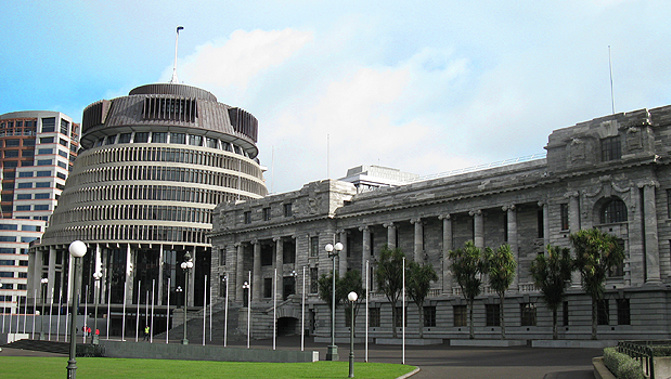
I’ve been keeping an eye on the media channels, scanning for political updates. Of course there have been precious few.
The silence is deafening. But it’s also been quite pleasant.
After the hurly burly of the election campaign, and the associated wall to wall media coverage, the information vacuum is quite noticeable. It must provide some pleasant relief for the politicians too. Having been harangued in the spotlight from daylight to dusk for weeks on end during the campaign, the wait for special votes and the quiet negotiation of a coalition agreement must seem like a return to normal. At least for a few weeks.
Fortunately we’ve had a very exciting Rugby World Cup to fill the void, both for us and for the television news channels.
At the centre of everything since election night, Prime Minister elect, Christopher Luxon was right to keep the post-election coalition negotiations away from the media spotlight. It’s good to see him sticking to his guns and his potential coalition partners playing ball too. Let’s hope it’s an early indication of a co-operative partnership in government.
The impact on those of us out here in the country’s communities is interesting too. Gone, for the time being at least, are the endless discussions about the state of things, the inadequacy of our government or the cost of living crisis.
Instead, notwithstanding the odd discussion about the rugby or the Middle East tensions, we seem to be getting on with our businesses and our lives. A peaceful and pleasant change.
I saw the television news clip of Christopher Luxon defending his decision not to carry out his post-election coalition negotiations in public. I agree with him. It’s the outcome we’re interested in, not the day by day guesswork of television journos, filling their three minute spots, pontificating on who might be saying what behind the scenes.
But in watching the clip, the reaction of the media pack was aggressive and disapproving. Leading with cliches like ‘the pubic right to know’ their displeasure was there for all to see as they realised that they might have to go out and look for news stories while waiting for a government to form, rather than having ‘one size fits all’ media announcements delivered to them with which to fill their daily slot between six and seven pm.
Their behaviour wasn’t without irony either. Here were the same group of journalists who had practically fallen at the feet of Prime Minister Ardern, who had failed spectacularly to hold the outgoing government to account, and who were almost negligent in challenging the Labour led government on any of their controversial policies or their inability to execute even the most basic of policy objectives.
And now suddenly they’ve decided to grow a spine and challenge the newly elected Prime Minister on his decision to do something quite appropriate. All because he made the decision to conduct his coalition negotiations in private, away from their prying eyes.
What the television journos might have missed is that their own behaviour highlighted why he was right to keep the process quiet. Why would you want your negotiation process to be put at risk by the manipulative comments of members of the media who have so brazenly supported the outgoing government over the last six years?
The television media should not be considered exempt from scrutiny when the post Covid enquiries are delivered. Remember the former PM’s Jessica and Tova show? When television journalists with prime time audiences were favoured at press conferences? And the favourable or even adoring coverage that followed. Well, now that time has passed. We have a new broom who has chosen to set some boundaries.
I imagine that coalition negotiations are difficult and tense. Firstly, the participants are all leaders in their own right, and highly charged individuals at that. They need to be to get to where they are. Secondly, every one of the political parties in the negotiation room will be asked to give away some of their policy or philosophy, things they have recently passionately campaigned on, in return for the retention of other policies that become objectives of the new government.
That tension could boil over in the event that a journalist picks up a snippet of info and goes public with their own interpretation at the wrong time. One of the most important assets in any relationship, including a coalition government, is the ability to trust your partner. I imagine that Christopher Luxon is trying to establish a foundation on which a trusting relationship can be formed. He only has three or four weeks to do it. Controlling the messaging is important for all parties involved.
And as for the rest of us? We’ll just have to wait. In reality, whether we know the daily details, or whether instead we are left to wait for the announcement of the final arrangements when the negotiations are complete, chances are the outcome would be no different for us having been informed along the way.
In the meantime, we should continue to enjoy the pleasantness and the quiet. And chat about the rugby. And we should remember an old saying … time will tell.
Bruce Cotterill is a company director and adviser to business leaders. He is the author of the book, The Best Leaders Don't Shout, a regular NZ Herald columnist and host of the Herald’s new podcast, Leaders Getting Coffee. www.brucecotterill.com
Take your Radio, Podcasts and Music with you









